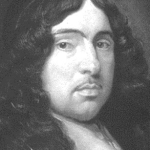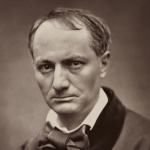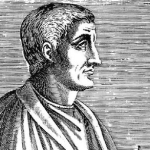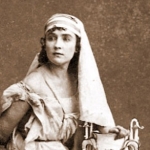See with what simplicity
This nymph begins her golden days!
In the green grass she loves to lie,
And there with her fair aspect tames
The wilder flowers, and gives them names:
But only with the roses plays;
And them does tell
What colour best becomes them, and what smell.
Who can foretell for what high cause
This Darling of the Gods was born!
Yet this is she whose chaster laws
And, under her command severe,
See his bow broke and ensigns torn.
happy, who can
Appease this virtuous enemy of man!
O, then let me in time compound,
And parley with those conquering eyes;
Ere they have tried their force to wound,
Ere, with their glancing wheels, they drive
In triumph over hearts that strive,
And them that yield but more despise.
Let me be laid,
Where I may see thy glories from some shade.
Meantime, whilst every verdant thing
Itself does at thy beauty charm,
Reform the errors of the spring;
Make that the tulips may have share
Of sweetness, seeing they are fair;
And roses of their thorns disarm:
But most procure
That violets may a longer age endure.
But, O young beauty of the woods,
Whom nature courts with fruits and flowers,
Gather the flowers, but spare the buds;
Lest Flora angry at thy crime,
To kill her infants in their prime,
Do quickly make the example yours;
And, ere we see,
Nip in the blossom all our hopes and thee.





















Comment form: